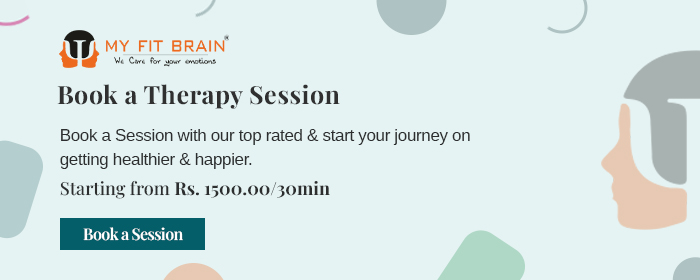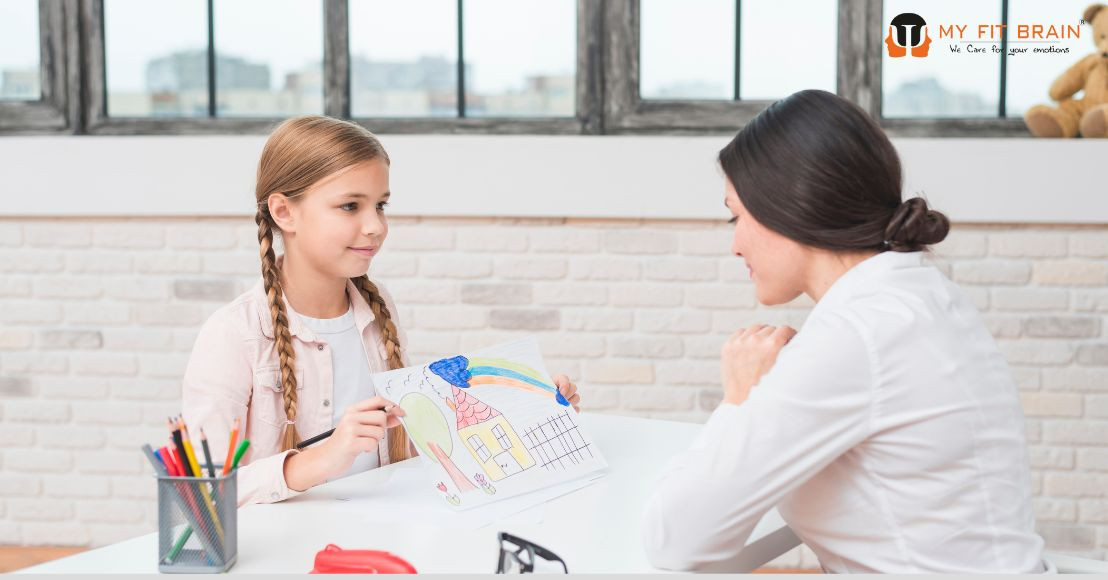Package of 5 Sessions
- Rs.5,999.00/-
Discover what works best after a breakup — professional breakup counseling or self-help methods. Learn which approach helps heal faster and rebuild confidence.
 Dr. Neha Mehta
Dr. Neha Mehta  11 Nov 2025
11 Nov 2025  Mental Health
Mental Health  58 Reads
58 Reads  6 min Read
6 min Read _1762843452.jpg)
A breakup can feel like the end of the world. Whether it’s a long-term relationship or a short-lived connection, the emotional pain, confusion, and loneliness that follow can be overwhelming. Everyone handles heartbreak differently — some turn to self-help books, meditation, or friends, while others seek professional breakup counselling to process their emotions deeply.
But when you’re caught between emotional exhaustion and the desire to move on, the question arises: What truly works best — breakup counselling or self-help?
Let’s explore how both approaches work, their benefits, and which one might be right for you depending on your emotional needs and recovery journey.

Breakups don’t just end relationships; they challenge your identity, self-worth, and emotional balance. You may find yourself replaying moments, questioning decisions, or struggling to adjust to the sudden silence. Common emotional responses include:
It’s natural to feel all of these — but how you handle them determines how quickly and healthily you heal. That’s where breakup counselling or self-help techniques come in.
Breakup counselling is a form of emotional therapy that helps individuals navigate the pain of relationship loss. It’s guided by a trained counsellor who provides emotional support, perspective, and healing techniques to rebuild your sense of self.
Counselling goes beyond talking — it’s a safe, nonjudgmental space where you can release emotions, untangle unhealthy patterns, and learn to see the breakup from a growth perspective.
After a breakup, many people suppress feelings to appear “strong.” Counselling helps you process your emotions openly without shame. A counsellor listens with empathy, helping you release bottled-up sadness, anger, or confusion in a healthy way.
Therapists help identify recurring relationship patterns — such as choosing emotionally unavailable partners or struggling with boundaries — so you can avoid repeating them in future relationships.
Breakups often damage self-esteem. Counselling helps you rediscover your value beyond the relationship, empowering you to feel confident and whole again.
It’s common to replay what went wrong endlessly. Counsellors use techniques like Cognitive Behavioural Therapy (CBT) and mindfulness to help you stop obsessive thinking and focus on the present.
Unlike self-help methods that rely on willpower, counselling gives you a guided path to closure — allowing you to let go of resentment, forgive yourself, and rebuild emotional peace.

Self-help involves using personal strategies and tools to manage emotions independently. This could include journaling, meditation, reading relationship recovery books, exercising, or spending time with supportive friends.
Self-help encourages self-reflection and emotional independence. It can be empowering — especially for those who prefer introspection or have a strong support network.
Self-help allows you to take control of your healing journey. It teaches resilience by encouraging you to explore emotions, reflect on lessons, and rebuild strength at your own pace.
You don’t need appointments or professional sessions — you can practice self-help techniques daily through journaling, yoga, or affirmations, making it a convenient choice.
Focusing on personal goals, learning new skills, or revisiting forgotten hobbies can help shift focus from pain to self-discovery and growth.
By managing your emotions on your own, you develop greater emotional intelligence and trust in your ability to handle future challenges.
| Aspect | Breakup Counselling | Self-Help |
| Guidance | Professional, structured support from a therapist | Self-guided using books, practices, or online resources |
| Effectiveness | Helps identify deep-rooted emotional issues and patterns | Works well for mild or situational distress |
| Personalization | Tailored to your emotional and mental state | General approach—depends on your self-discipline |
| Accountability | Therapist provides direction and tracking | You’re solely responsible for progress |
| Emotional Depth | Addresses underlying wounds, trauma, and attachment issues | Focuses on surface-level emotional regulation |
Both methods have their own strengths — self-help promotes independence, while breakup counselling provides depth and emotional structure.

While self-help can be valuable, some situations call for professional support. You may benefit from breakup counselling if:
A counsellor helps you process emotions safely and constructively, ensuring you heal emotionally—not just distract yourself from the pain.
Self-help can be ideal if you’re emotionally stable but need direction and motivation. It works best when you:
It’s also helpful to combine both approaches—using self-help tools alongside counselling for maximum emotional growth.
You don’t have to choose one over the other. Many people find that combining counselling and self-help gives the best results. Counselling offers structure and healing guidance, while self-help keeps you engaged and responsible for your progress outside therapy.
For instance, your counsellor might suggest mindfulness or journaling exercises to complement therapy sessions. This mix allows you to process pain consciously while actively rebuilding confidence and direction.

Healing from a breakup isn’t about “getting over” someone—it’s about rediscovering yourself. Self-help builds independence, but professional breakup counselling helps you dig deeper, understand your emotions better, and heal at the root level.
If you’ve tried self-help and still feel stuck, counselling can give you the clarity and strength you need to truly move forward. Remember, seeking help isn’t a sign of weakness—it’s a powerful step toward emotional maturity and self-love.
Whether you choose counselling, self-help, or both, what matters most is staying patient and kind to yourself through the process. Healing is not linear, but with the right support, peace and happiness will follow.
Breakup counselling is therapy focused on helping individuals heal emotionally and mentally after the end of a relationship.
Yes, for mild distress or when you have strong self-awareness, self-help methods like journaling or meditation can be effective.
If your breakup leads to prolonged sadness, overthinking, or emotional instability, professional counselling can provide the right guidance.
It varies depending on your emotional needs—some people benefit from 4–8 sessions, while others continue for deeper healing.
Absolutely. Using self-help techniques between therapy sessions can strengthen your emotional recovery and confidence.


Children feel emotions just like adults -- they only communicate them diffe...
 10 Nov 2025
10 Nov 2025  6 min Read
6 min Read 50 Reads
50 Reads 

Families are living ecosystems. When one component is impacted and the enti...
 06 Nov 2025
06 Nov 2025  6 min Read
6 min Read 94 Reads
94 Reads 

Family is the basis of growth, emotional support, and belonging; however, e...
 04 Nov 2025
04 Nov 2025  6 min Read
6 min Read 148 Reads
148 Reads _1761824406.jpg)

Each strong relationship doesn't develop in a single day; it's nurt...
 30 Oct 2025
30 Oct 2025  6 min Read
6 min Read 238 Reads
238 Reads 






_1761824406.jpg)